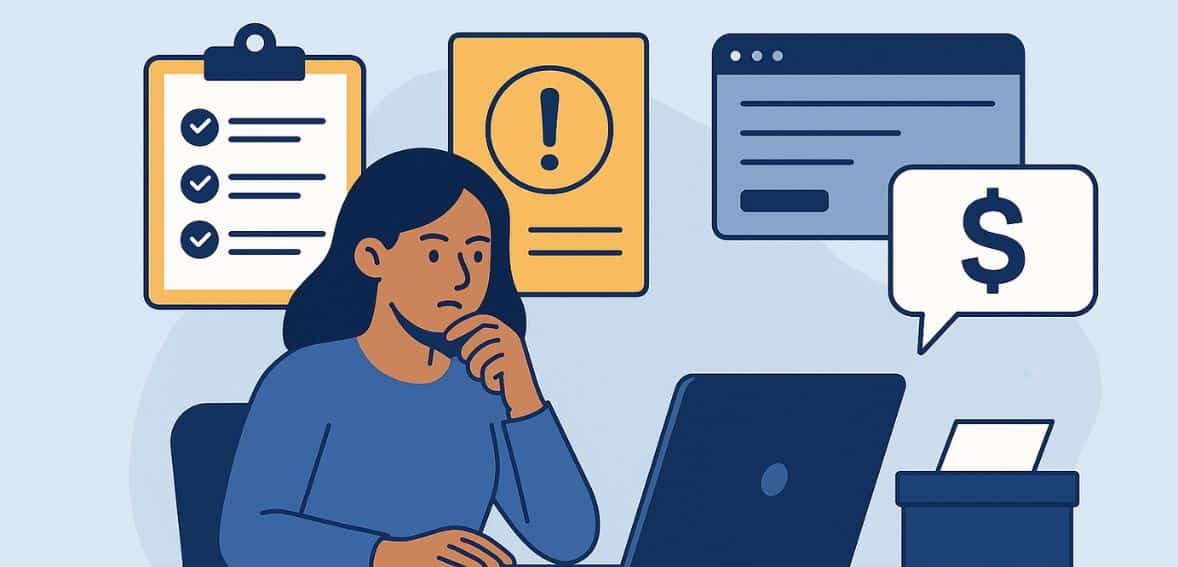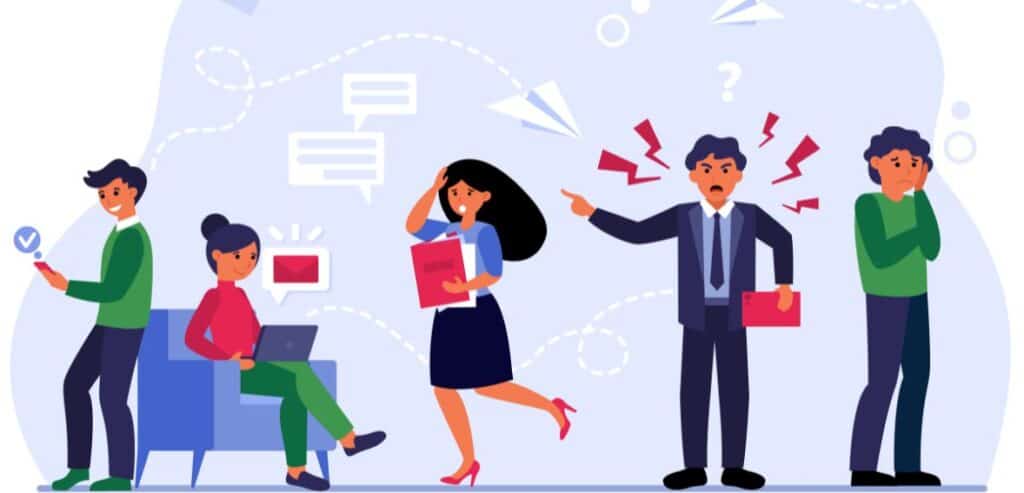
By admin August 13, 2025
When money may be the lifeblood of the business world, trust is the lifeblood. And a billing dispute is the best way to test that trust. In addition to causing financial difficulties, miscommunications and disputes regarding charges can harm relationships, tarnish reputations, and slow down operations, regardless of whether you manage a corporate account, a small business, or individual clients.
Although disputes are frequently viewed as inevitable issues, dispute management plays a crucial role in maintaining customer trust, safeguarding your earnings, and even growing your company. Managing conflicts effectively is both a science and an art—requiring empathy, diligence, and organized procedures to monitor and quickly resolve problems.
Why Billing Disputes Happen in the First Place

Although there are many causes for disputes, the majority stem from miscommunication, human error, or misplaced expectations. An invoice sent for services that have not yet been rendered, a duplicate charge, or a missed decimal point can all quickly aggravate a client. A contract’s interpretation can occasionally be the issue; what is written may appear clear to one party but may be interpreted differently by another.
In other situations, even when the technical aspects of the bill are accurate, disagreements arise because the client believes they were not given the value they were promised. Although each dispute is unique, they all have one thing in common: they need to be handled carefully to prevent the matter from getting out of control.
The Role of Accurate Tracking in Preventing and Resolving Disputes
Effective conflict resolution begins long before a dispute occurs. Companies that make an investment in precise and well-structured billing systems position themselves to either completely prevent disputes or promptly address them when they do arise. In-depth documentation of agreements, service logs, correspondence, and financial transactions can be used as a defense as well as a preventative measure.
Dates, times, and descriptions of each transaction can be automatically recorded by modern billing software, guaranteeing that nothing is forgotten. In the event of a more serious dispute, these documents may be essential for proving your case or for clarifying charges to an unclear client.
Spotting a Dispute Before It Escalates

A formal complaint is not always the first step in a billing dispute. More frequently, there are indications before it fully manifests, such as a client raising concerns about a recent invoice, postponing payment, or voicing discontent with the caliber or promptness of the work. Early detection of these indicators may mean the difference between a short-term solution and a protracted dispute.
Companies that keep lines of communication open and keep a close eye on accounts are able to spot possible disputes early on. Once identified, they can take proactive measures to make changes, explain charges, or clarify terms before the client feels pressured to escalate.
The Psychology Behind Billing Disputes
Every billing dispute is based on more than just data and documentation; it also involves feelings and opinions. A client’s concern is frequently motivated by factors other than a disagreement about facts; these may include stress, uncertainty, or even a sense of being underappreciated.
Businesses can respond in a way that tackles the problem’s emotional and practical aspects by having a thorough understanding of this psychology. For a lot of clients, trust is linked to money. Even if the actual disparity is tiny, a dubious charge could raise questions about justice or openness.
Businesses can handle the conflict more empathetically when they acknowledge that it is not just a transactional issue. Tensions can be reduced early on by approaching the situation to reassure rather than correct.
This could involve using more time explaining the reasoning behind a certain procedure or the way a certain cost was determined. By accepting the client’s feelings as valid, regardless of the veracity of the claim, you foster a cooperative rather than combative atmosphere for resolution. What might have been an opposing exchange can be transformed into a chance for greater client loyalty and trust thanks to this human touch.
Investigating with Precision and Neutrality

A thorough and fair investigation is essential when a disagreement emerges. This entails gathering all pertinent information, including contracts, delivery logs, payment records, email correspondence, and any notes made by team members. Neutrality is the aim. Making snap judgments can lead to unneeded tension, even when the evidence seems clear.
Due to unclear communication, the client may occasionally be technically incorrect but emotionally justified. A well-rounded, fact-based strategy enhances credibility and raises the possibility that your resolution will be approved.
Communicating Findings Clearly
After the investigation is finished, clearly and thoughtfully present your findings. Steer clear of defensive or extremely formal language. Rather, take the client step-by-step through the scenario, explaining how you arrived at your conclusion. Admit your company’s error and describe how you plan to fix it.
If the facts don’t support the dispute, calmly present your documentation and ask the client questions. When done correctly, this step not only fixes the immediate problem but also informs the client, lowering the possibility of future misunderstandings of the same nature.
Staying Professional Under Pressure
Conflicts can be emotionally charged, especially when big money or delicate projects are at stake. Customers may use personal ways to express their frustration. It’s critical to remain composed during these situations.
A clear message is sent when you remain composed, courteous, and solution-focused: your company maintains its integrity even when things get tough. This professionalism influences the client’s long-term opinion of your business in addition to helping to settle the current conflict. For payment-related disputes, especially ACH disputes, understanding the right processes can help you resolve issues efficiently while preserving client trust.
Leveraging Technology for Smoother Dispute Management

Integrated CRM and billing platforms can link each invoice to the related contracts, communications, and payment records, creating an easy-to-review ,clear trail; automated ticketing systems can make sure that no dispute is overlooked and that each one is tracked until it is resolved.
Some systems even let clients submit and track disputes online, adding transparency to the process; and beyond dispute resolution, these tools can identify patterns, like recurring misunderstandings over a particular charge type, that indicate areas where your billing process can be improved.
Prevention as the Best Strategy
There will always be disagreements, but the fewer you have to settle, the better. Transparent pricing structures, clear contracts that exclude any room for interpretation, and thorough invoices that break down each charge are the first steps towards prevention.
It is equally important to train employees on accurate billing and client communication. Finding possible problems before they become disputes can also be facilitated by routinely evaluating your billing procedure and getting client input. You can save time, lessen stress, and safeguard your reputation by integrating prevention into your operations.
Many disputes can be traced back to simple errors at the point of sale—incorrect amounts entered, incomplete transactions, or duplicate charges. Ensuring your payment equipment is up-to-date, user-friendly, and suited to your transaction volume can greatly minimize such issues before they escalate.
Learning from Past Disputes to Improve Future Processes

Every client dispute offers valuable insight into improving billing processes and strengthening relationships. Instead of treating disputes as isolated problems, view them as opportunities to refine your approach. After resolution, analyze the root cause—was it unclear pricing, vague contract terms, or delayed communication?
Identifying patterns helps you make targeted changes, such as revising invoice formats for clarity, retraining staff on cost explanations, or tightening internal reviews to catch errors early. This proactive approach shifts dispute management from a reactive task to a strategic advantage.
Clients notice when businesses learn from mistakes and adapt, which builds trust and loyalty. Over time, turning disputes into catalysts for improvement shows operational maturity and a genuine commitment to respecting clients’ perspectives.
Quick Takeaways on Managing Client Billing Disputes
- Maintain clear, transparent contracts and itemized invoices to avoid misunderstandings.
- Use modern billing software to automatically track dates, services, and transactions.
- Watch for early warning signs like delayed payments or client concerns.
- Address both the factual and emotional sides of a dispute with empathy.
- Investigate thoroughly using contracts, logs, and communications.
- Communicate findings clearly without defensive or legalistic language.
- Focus on fairness over “winning” the argument—offer goodwill gestures if needed.
- Stay calm and professional under pressure.
- Use CRM tools and ticketing systems to track disputes.
- Learn from past issues to improve processes.
- Reserve legal action as a last resort.
When Legal Action Becomes Necessary
The majority of disagreements can be settled by compromise and open communication, but sometimes they get out of hand to the point where legal action is required. The records you’ve kept become extremely valuable in these situations. The foundation of your legal defense is comprised of thorough documentation of contracts, correspondence, and payment histories.
Legal action should only be used as a last resort because it can be expensive and strain relationships. A client is frequently persuaded to resolve the issue without formal proceedings just by the presence of well-documented evidence.
Conclusion
Dispute management is about protecting the trust that keeps customers coming back, not just about correcting errors or fighting claims. Businesses can transform potentially harmful situations into chances for stronger relationships by closely monitoring every transaction, addressing problems early, and resolving conflicts fairly and professionally.
The outcome is ultimately determined by the human element—empathy, respect, and clear communication—even though technology can expedite the process. Every dispute that is settled ultimately serves as a statement about your company’s values and dedication to treating your clients fairly, not just a closed case.
Even the most difficult billing disputes can be resolved with the correct strategy, leaving all parties feeling valued and prepared to carry on doing business with one another.
